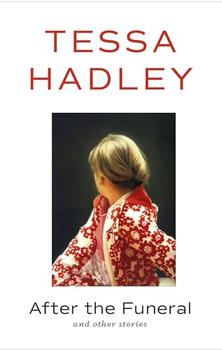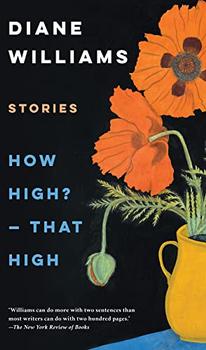Summary | Excerpt | Reviews | Beyond the book | Read-Alikes | Genres & Themes | Author Bio

Selected Stories
by Edna O'BrienCollected here for the first time are stories spanning five decades of writing by the "short story master." (Harold Bloom)
As John Banville writes in his introduction to The Love Object, Edna O'Brien "is, simply, one of the finest writers of our time." The thirty-one stories collected in this volume provide, among other things, a cumulative portrait of Ireland, seen from within and without.
Coming of age, the impact of class, and familial and romantic love are the prevalent motifs, along with the instinct toward escape and subsequent nostalgia for home. Some of the stories are linked and some carry O'Brien's distinct sense of the comical. In "A Rose in the Heart of New York," the single-mindedness of love dramatically derails the relationship between a girl and her mother, while in "Sister Imelda" and "The Creature" the strong ties between teacher and student and mother and son are ultimately broken. "The Love Object" recounts a passionate affair between the narrator and her older lover.
The magnificent, mid-career title story from Lantern Slides portrays a Dublin dinner party that takes on the lives and loves of all the guests. More recent stories include "Shovel Kings" - "a masterpiece of compression, distilling the pain of a lost, exiled generation" (Sunday Times) - and "Old Wounds," which follows the revival and demise of the friendship between two elderly cousins.
In 2011, Edna O'Brien's gifts were acknowledged with the most prestigious international award for the story, the Frank O'Connor Short Story Award. The Love Object illustrates a career's worth of shimmering, potent prose from a writer of great courage, vision, and heart.
Edna O'Brien's The Love Object is more than a short-story collection, it's an encyclopedia of perfect storytelling and a retrospective on the fifty-year career of a writer of exquisite finesse and pathos. O'Brien has taken a great deal of time over these small works of art. They are finely wrought pieces with vivid details, sparingly rendered. The sentences are buffed to a polish, the symbolic images (a green georgette evening gown, a mossy cave, an undercooked fowl) so finely worked, their seams are invisible...continued
Full Review
 (781 words)
(781 words)
(Reviewed by Jennifer G Wilder).
 Edna O'Brien was born in 1930 in western Ireland, where her parents lived in a picturesque stone house called Drewsboro, built on the remains of a fancy country house her father had helped burn down so the British couldn't use it during the Irish War of Independence after World War I. Her father's family was wealthy, her mother's, poor. They raised racehorses and other livestock. O'Brien grew up exploring the wild country landscape, full of bogs and forests, and observing the unhappiness of her parents. Her father drank and got into debt, and her mother kept the farm going and suffered. Meanwhile, the local Catholic culture was suspicious of literature but flush with storytelling and the old poetry and folklore of the Irish past. ...
Edna O'Brien was born in 1930 in western Ireland, where her parents lived in a picturesque stone house called Drewsboro, built on the remains of a fancy country house her father had helped burn down so the British couldn't use it during the Irish War of Independence after World War I. Her father's family was wealthy, her mother's, poor. They raised racehorses and other livestock. O'Brien grew up exploring the wild country landscape, full of bogs and forests, and observing the unhappiness of her parents. Her father drank and got into debt, and her mother kept the farm going and suffered. Meanwhile, the local Catholic culture was suspicious of literature but flush with storytelling and the old poetry and folklore of the Irish past. ...

If you liked The Love Object, try these:

After the Funeral and Other Stories
by Tessa Hadley
Published 2024
A masterful collection of stories that plumb the depths of everyday life to reveal the shifting tides and hidden undercurrents of ordinary relationships.

by Diane Williams
Published 2022
Diane Williams, an American master of the short story who will "rewire your brain" (NPR), is back with a collection in which she once again expands the possibilities of fiction.